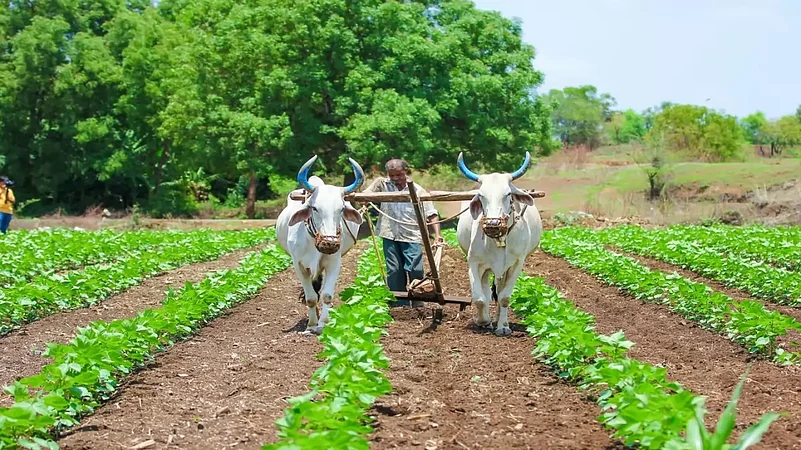India on Monday expressed confidence that the G-20 meet will bring out solutions like new technologies for enhancing farm productivity, which is key for tackling the global food security concerns. Around 90 delegates from 30 nations, including representatives of international organisations, attended the three-day event. Agriculture Secretary Manoj Ahuja was also present at the event.
In his inaugural address at the the first meeting of the G-20 Agriculture Deputies held under India's presidency here, three-time chief minister of Madhya Pradesh and a pioneer in some of the agriculture reforms Shivraj Singh Chouhan said: "The need of the hour is to focus on three main areas -- increasing production, reducing cost of cultivation and ensuring better prices to the farmers. "India is already working towards this direction," he said.
Chouhan further said, "Food security is a major concern before the world due to rising population. By 2030, the global foodgrains demand is estimated to be 345 million tonne as against 192 million tonne in the year 2000." Only 12 per cent of the world's arable land is suitable for agriculture. Neither the land is going to increase nor the natural resources, he said.
Therefore, it is necessary to utilise land and natural resources in a better way and increase the farm productivity to meet the future food demand, he said. "I am confident that the G-20 summit will help boost the farm sector by connecting new technologies through local organisations," the chief minister added.
Asserting that there is a need to make agriculture profitable, the chief minister said there is an alternative for other things and not for food. "For food, we need agriculture." Speaking to the media separately, the chief minister reiterated that the food security challenges faced by the entire world is due to the growing population and said India will play its rightful role in feeding the world.
In Madhya Pradesh too, he said, several steps have been taken to boost production and income of farmers. The farm sector grew more than 18 per cent in Madhya Pradesh consistently in the last one decade. The state contributes to 60 per cent of India's total wheat exports. Its 'Sharabati' wheat variety is well known in the world, he said.
Foodgrain production in Madhya Pradesh has increased to 619 lakh tonnes in the last 18 years from 159 million tonnes, he added. "India is meeting the needs of the world. ...About 21 lakh tonne wheat has been exported from Madhya Pradesh alone this year. There are many opportunities. We will exploit them to meet the food security needs of the world," Chouhan told media. The prospect of wheat crop in Madhya Pradesh is "good" and production would break the previous record, he said on the sidelines of the media briefing.
Madhya Pradesh is the second biggest producer of wheat after Uttar Pradesh. Already early sown wheat varieties in the state have started arriving in the market. Chouhan also shared the steps India has taken to promote organic and natural farming in order to reduce use of chemical fertilisers.
The Madhya Pradesh chief minister also inaugurated an exhibition which showcased millets and its value-added food products apart from the allied farm sector. Thereafter, two side events namely, Stock taking of G20 initiatives and Global Forum on Climate Smart Agriculture on Food Security, were held on the first day of the three-day meeting.
During the three-day event, issues such as climate smart initiatives, adoption of climate smart technology by small farmers as well as agriculture market information system, wheat initiatives, agriculture risk management and reduction of food loss will be discussed in detail.
Early this morning, the day started with the heritage walk at Rajwada Palace where the delegates got an opportunity to indulge in the history of the palace, which was built by the Holkars in 18th century.
Union minister of civil aviation and steel Jyotiraditya Scindia will address the conference on Tuesday, following which there will be a general discussion among the participating members and international organisations. On last day of the event on February 15, the delegates will deliberate on the key deliverables of the AWG. It will be a technical session with roundabout discussions and participation from all concerned members and international organisations.































